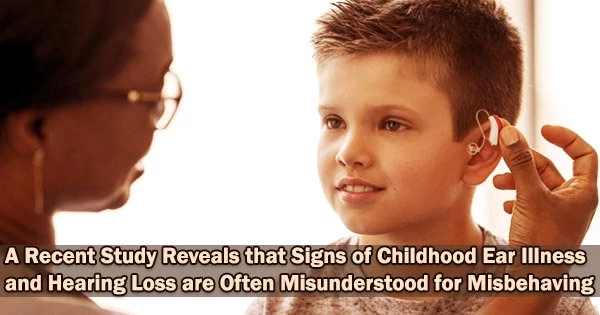The physical, emotional, and social wellbeing of Aboriginal and Torres Strait Islander children can be significantly impacted by childhood ear disease and hearing loss, according to new research from Western Sydney University. Otitis media symptoms are frequently hard to recognize and mistaken for misbehavior.
The study, which was published in Health Expectations, examined the obstacles and difficulties caregivers of Aboriginal and Torres Strait Islander children with Otitis Media confront in obtaining adequate treatment.
Letitia Campbell, the study’s lead author and a community-based Aboriginal Research Officer at Western Sydney University’s School of Medicine, claims that the prevalence of Otitis Media in young Aboriginal and Torres Strait Islander children is high. She is working to improve how families can manage the condition and access better medical care.
“Living with chronic ear disease and its consequences on hearing, language development, school performance and behavior is a common reality for many Aboriginal and Torres Strait Islander families, with the impact of hearing loss in children having long lasting effects on their well-being and development,” said Ms. Campbell.
“Caregivers have described how easy it is to mistake ear disease for misbehavior in a child, and how distressing this is to the children who feel they are always getting into trouble for ‘not listening’ or talking too loudly when there is a genuine underlying medical reason.”
“Symptoms can change and vary between episodes of ear disease in children. Sometimes they can be obvious symptoms such as ear pain, a high temperature, or discharge from the ear; but there are also subtle symptoms which can sometimes be missed such as a child being uncharacteristically quiet or attention-seeking,” she said.
Living with chronic ear disease and its consequences on hearing, language development, school performance and behavior is a common reality for many Aboriginal and Torres Strait Islander families, with the impact of hearing loss in children having long lasting effects on their well-being and development.
Ms. Letitia Campbell
The study also revealed that parents of Aboriginal and Torres Strait Islander children frequently worry about racial prejudice and having their child’s illness wrongfully attributed to poor parenting rather than to more extensive structural factors that affect access to health care.
Ms. Campbell says, “recognizing and considering the experiences of caregivers looking after a child with hearing health problems and helping health care providers to better understand and be aware of these issues, is the key to building trusting relationships that lead to positive patient outcomes.”
“Conversations about ear disease need to be respectful of the family and the knowledge caregivers have of their child’s ear disease. Health care providers need to communicate clearly without medical jargon to explain the different treatment options available and work with caregivers in the decision making process of how to best treat the ear disease and hearing loss for their child.”
“We have seen caregivers display a great deal of health literacy and enthusiasm in gaining a better understanding of their child’s condition to better advocate for the best treatment, and the findings of our research support families and health care providers working together to tackle ear disease in vulnerable communities,” Ms. Campbell said.
Associate Professor Penny Abbott from Western Sydney University’s School of Medicine and Department of General Practice says it is wonderful to see a new community-based Aboriginal researcher undertake work to improve the health and well-being of Aboriginal and Torres Strait Islander communities.
“The School of Medicine is very proud to support Letitia in leading her new study. There is a great need for a new generation of Aboriginal and Torres Strait Islander researchers to lead the way in advocating for better health outcomes that benefit Aboriginal people and communities, and I hope this is the start of a long research career for Letitia,” said Associate Professor Abbott. Western Sydney University have launched two large clinical trials to better understand childhood ear disease.
Ms. Campbell has been involved in the University’s WATCH and INFLATE clinical trial programs aiming to improve management of acute Otitis Media and reduce hearing loss and ear disease in Aboriginal and Torres Strait Islander children.
















